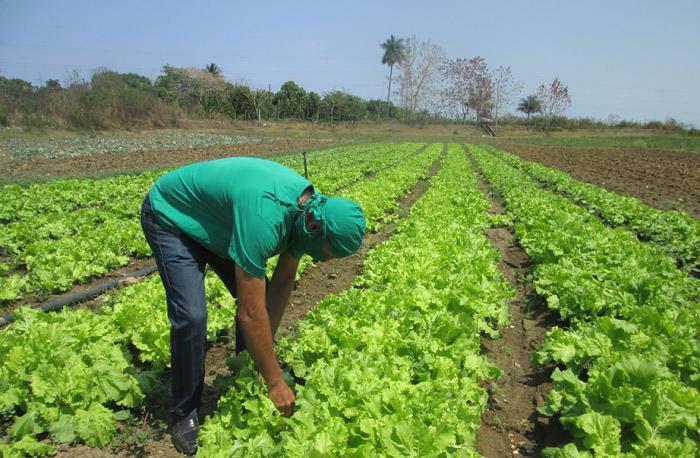
Sembrar Con-Ciencia (Sowing with Science) movement begins in Havana
"These cooperatives need support to boost, from science, their productive activity, so that their contribution to municipal self-sufficiency is higher and the territory does not have to depend on agricultural products that come from other provinces," Abreu Izquierdo added.
In the municipality, he said, 30 pounds per capita has been reached, however, we still have to receive products from other territories, when the different productive forms could provide more food for the 83 131 inhabitants of Cotorro.
There, as it happens in the rest of the municipalities, the agricultural delegations, university students, research centers, the Ministry of Science, Technology and Environment, scientists participate in this movement, under the leadership of the mayors. "The students and professionals are distributed in the three productive forms, visiting the farmers, emphasizing those scenarios where the greatest difficulties are concentrated, for their training and support work", highlighted the Cotorro's program coordinator.
The general objective of this movement is to strengthen the connection of the actors that make up the Local Food Systems with science and innovation, favoring the participation of students, scientists and experts together with producers under the leadership of the Government.
The activities, which include training actions, support to producers in productive scenarios and cultural proposals will take place between April 25 and 30.
This movement has as background the approval of the National Plan for Food Sovereignty and Nutritional Education (Communication Strategy and need for training) and the 63 measures with 648 actions to boost food production, and the indication of the President of the Republic of Cuba, Miguel Díaz-Canel Bermúdez, on the Government Management System based on science and innovation at the provincial and municipal level, associated with sustainable development, adapting the Local Innovation System.
In turn, the existence of successful experiences in the country regarding the linkage of young people, students and scientists with producers to exchange knowledge and encourage knowledge-based production, as well as other national and international practices such as Popular Education, as a participatory and transformative process, space for dialogue, meeting and reflection, where no one educates anyone, but everyone learns and generates popular and collective knowledge.
Sembrar Con-Ciencia also seeks to promote the management of Local Food Systems with science and innovation, based on the characteristics of each municipality, encourage effective communication between the different actors within the Local Food Systems and contribute to the training of municipal actors for the implementation of the 63 measures approved to boost food production, contributing to the Food Sovereignty and Nutrition Education Plan.
Together, young people and veterans
In El Cotorro, 98 university students are participating in Sembrar Con-Ciencia. One of them, Jenifer Pérez, a second year student of Agricultural Engineering, considers that "we young people have a great impact on this movement, because we are going to contribute good ideas and initiatives that we have learned from our professors, with scientific categories, who have helped us to be able to help here in Cotorro, where there are many cooperatives that can be exploited much more than they are being exploited".
For Neilié González, also in her second year of Agricultural Engineering, "we are the youth, those who are studying now and learning from the old and the new, there are new ideas and with them we can advance faster". According to him, the countryside needs it because "it is where food is produced and it is the sector that needs more attention, because a building will never produce the same as a hectare of land, a relatively small extension, but it produces a lot".
Eduardo Lucas Vieito Reyes, assistant researcher at the Research Center for Animal Improvement, emphasizes that "the movement seeks precisely food sovereignty, that everyone should produce in their own locality as much as possible for domestic supply and, if possible, that it should always remain to protect the vulnerable population, children and the elderly, and make the country more independent.
In the scientist's opinion, a country that is not capable of producing its own food would never be an independent country, said Martí, then Fidel and now President Miguel Díaz-Canel, and Cuba is a country with many advantages due to the technical capabilities it has and the young people who are being trained".
Regarding the incorporation of young people to this initiative, he considered that "the agricultural population and agricultural workers is aging, the country is aging, people are aging, the workforce is aging and they, more than the future, are the present, because they are already doing things and in their daily teaching activities they join and contribute, while they learn, and when they graduate they will be a very qualified workforce".